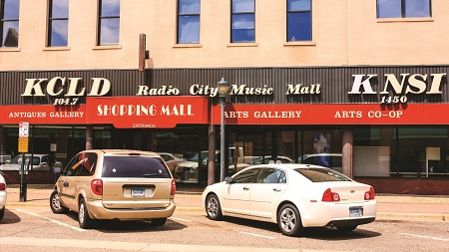Why the Main Studio Rule Must Go
The professional video industry's #1 source for news, trends and product and tech information. Sign up below.
You are now subscribed
Your newsletter sign-up was successful
The author is owner at the law firm Garvey Schubert Barer.
For more than 50 years, the Federal Communications Commission has required radio and television stations to maintain a “main studio” within or near their communities of license. This requirement may have made sense decades ago, but today it imposes unjustified costs, while doing nothing to ensure the original goal of the law — local content and programming.

That’s why we filed a petition with the FCC a few weeks ago asking the commission to get rid of the Main Studio Rule, and now the FCC chairman himself has announced that he agrees and plans to launch a rulemaking at the commission’s May 18 meeting.
Here are three reasons why the Main Studio Rule must go:
THERE WILL BE NO IMPACT ON BROADCASTERS’ “BEDROCK” PUBLIC INTEREST OBLIGATIONS
Eliminating the Main Studio Rule will not reduce or remove broadcasters’ “bedrock” obligation to serve the needs and interests of their local communities. Instead, the commission must recognize the technological and economic realities of today’s broadcast marketplace — stations can serve their communities while realizing substantial and necessary cost savings; and that most listeners and viewers contact their local stations by telephone, email or online.
Furthermore, the commission has already eliminated the underlying local program origination requirement and, more recently, has provided that licensees must make their public files available entirely online, thereby further undermining any rationale for maintaining a local main studio location.
GETTING RID OF THE MAIN STUDIO RULE WILL HELP SMALL STATIONS REMAIN COMPETITIVE
The professional video industry's #1 source for news, trends and product and tech information. Sign up below.
As the commission acknowledged as far back as 1987, the broadcasting industry continues to face challenges from dramatic changes, including radical competitive, financial and technological transformations.
The current rule places a significant financial burden on small stations, which must devote scarce resources to maintaining their main studios during business hours and employing full-time managerial and staff personnel. Also, many co-owned stations are unable to realize efficiencies that would come from co-locating their operations and offices.
At NAB Show in Las Vegas, Chairman Pai singled out the main studio rule as “outdated” and acknowledged that “technical innovations have rendered local studios unnecessary.” And Commissioner O’Rielly recently commented that eliminating or severely modifying the rule could not only “allow for cost savings that could make a real difference for some stations,” but also could provide stations “a security dividend through more efficient channeling of public access.”
MODERN TECHNOLOGY MAKES THE RULE OBSOLETE
Commissioner O’Rielly has pointed out that the justification for the Main Studio Rule has been “significantly weakened” due to the public’s virtually universal choice to contact their local stations via telephone or online. In fact, this change in consumer preference has been recognized by the commission in rulemakings since at least 1987.
The modern reality of, and overwhelming preference for, remote communication will allow stations to continue to be responsive to local interests and concerns — and to do so without the added regulatory cost of maintaining a main studio.
Normal competitive marketplace forces will ensure that stations remain accessible and responsive to their audiences, but will do so through today’s modern communications channels.
As the FCC noted when it moved the public inspection files online, the “evolution of the internet and the spread of broadband infrastructure have transformed the way society accesses information today. It is no longer reasonable to require the public to travel to a station or headquarters’ office to review the public file and make paper copies when a centralized, online file will permit review with a quick, easy, and almost costless internet search.”
The commission has already eliminated most, if not all, of the primary justifications for the Main Studio Rule — including the program origination requirement, public inspection file location and the local correspondence file rule.
All that remains is an arcane requirement that has come unmoored from its underlying policy rationales, and therefore no longer serves the public interest. When the commission launches its rulemaking proceeding on May 18, every broadcaster should strongly consider filing comments to let the FCC know — loud and clear — that it’s finally time to eliminate the Main Studio Rule.
